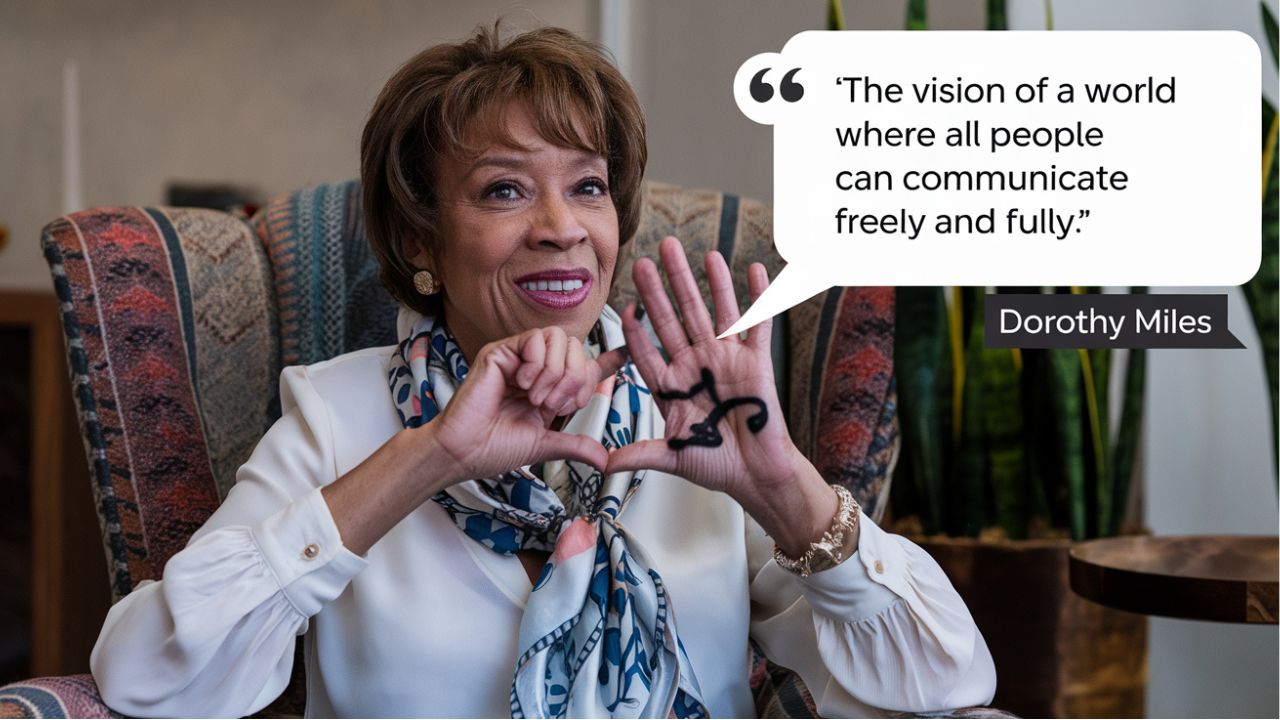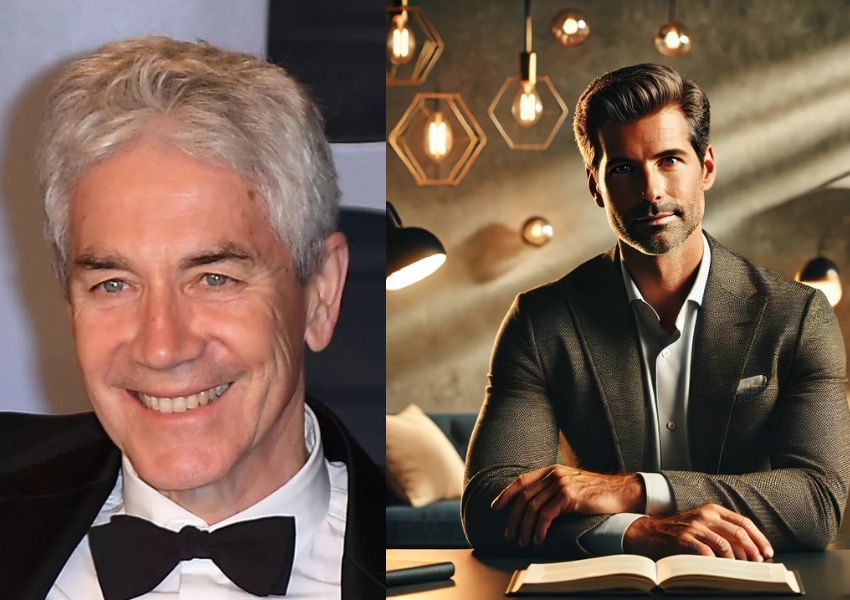The Life and Legacy of Dorothy Miles
Born in 1931 in Wales, Dorothy Miles faced a unique journey marked by resilience, creativity, and determination. She experienced profound hearing loss in her early years, leading her to navigate both Deaf and hearing spaces. Throughout her life, she embraced the richness of Deaf culture, which fueled her passion for British Sign Language and sign language poetry. Known as “Dot” by her friends and colleagues, Miles became a vital link between the Deaf and hearing worlds. Advocating for accessibility and mutual understanding.
Pioneering British Sign Language Poetry
As a Deaf poet and performer, Dorothy Miles is widely celebrated as the mother of British Sign Language poetry. Her poetry transcended the traditional boundaries of written and spoken word, using BSL as a powerful, expressive medium. She skillfully transformed sign language into an art form, creating performances that allowed audiences to feel depth. Rhythm, and emotion conveyed through her hands and facial expressions.
Dorothy’s works did not merely tell stories; they conveyed the essence of her identity and her experiences as a Deaf person. Her poetry resonated deeply with Deaf audiences, offering a cultural and emotional representation rarely seen in mainstream media. Additionally, her works inspired many Deaf poets and artists to recognize BSL as a legitimate, artistic language in its own right.
Dorothy Miles and Deaf Theatre
Dorothy Miles also made a significant mark on Deaf theatre, collaborating with major organizations like the National Theatre of the Deaf (NTD) in the United States. Her work with the NTD helped her refine her craft, blending Deaf and hearing talent in groundbreaking performances. She played a crucial role in developing sign language theatre. A genre that allowed Deaf performers to engage audiences in a way that showcased their unique cultural expression.
This form of performance, deeply rooted in Deaf culture, enabled Deaf actors to step into the spotlight, highlighting their experiences and challenges. Dorothy Miles believed that Deaf theatre was an essential platform for sharing Deaf narratives and fostering empathy and awareness in the broader community. Her efforts in this arena have left an indelible mark, paving the way for future generations of Deaf performers.
Advocacy for Accessibility and Inclusion
In addition to her artistic achievements, Dorothy Miles was a staunch advocate for accessibility and Deaf rights. She firmly believed that communication was a fundamental right and that society should adapt to include Deaf individuals. Rather than expecting them to conform to a hearing-centric world. Her advocacy extended to promoting the recognition of BSL as a unique language, complete with its grammar and structure.
Her message emphasized the value of diversity and the need for society to embrace different ways of communication. Dorothy’s work in this area was pivotal in the broader movement for Deaf rights, contributing to the gradual acceptance of BSL in educational, professional, and public domains. Her efforts helped increase awareness and support for accessibility measures. Including interpreters, subtitles, and other accommodations that continue to benefit Deaf individuals today.
Celebrating the Dorothy Miles Cultural Centre
The Dorothy Miles Cultural Centre, named in her honour, is a vibrant hub that celebrates her contributions and promotes Deaf arts, education, and community engagement. Located in the United Kingdom, the center offers resources and workshops. Events dedicated to preserving and advancing Deaf culture and BSL poetry. This centre stands as a testament to her legacy, providing a space where Deaf individuals can explore and express their identity.
The center also collaborates with artists, educators, and advocates to create an inclusive environment that honors Dorothy Miles’s vision. Through its programs, the Dorothy Miles Cultural Centre empowers the Deaf community, encourages creative expression, and fosters a sense of belonging.
How Dorothy Miles Continues to Inspire Generations
Dorothy Miles’s influence extends far beyond her lifetime, inspiring countless individuals within the Deaf and hearing communities alike. Today, Deaf poets, writers, and activists draw from her legacy, striving to push boundaries, and challenge stereotypes. And promote the beauty of sign language and Deaf culture. Through her life’s work, Miles demonstrated the transformative power of creativity, resilience, and empathy.
Dorothy Miles showed the world that language exists beyond words, and communication is a profound, multifaceted experience. Her poetry, advocacy, and spirit continue to inspire others to celebrate diversity and promote a world where every voice—signed or spoken—is heard and valued.
FAQs
Who was Dorothy Miles?
Dorothy Miles was a Deaf poet, playwright, and advocate for Deaf rights. She is widely regarded as the pioneer of British Sign Language poetry and a powerful voice for Deaf culture and accessibility.
Why is Dorothy Miles important to British Sign Language (BSL)?
Dorothy Miles is credited with transforming BSL into an artistic medium through her poetry. Paving the way for its acceptance as a legitimate form of literature and a cultural expression for the Deaf community.
What was Dorothy Miles’s role in Deaf theatre?
Miles worked with the National Theatre of the Deaf and was instrumental in developing Deaf theatre as a genre, creating a space. Where Deaf narratives could be authentically shared and appreciated by wider audiences.
How did Dorothy Miles advocate for Deaf rights?
Dorothy Miles was a staunch advocate for accessibility and inclusion. She championed the recognition of BSL as a unique language and promoted the use of interpreters, and subtitles. Other accommodations for the Deaf community.
What is the Dorothy Miles Cultural Centre?
The Dorothy Miles Cultural Centre is dedicated to preserving and promoting Deaf arts, education, and community engagement. It serves as a tribute to her legacy and fosters a space for the Deaf community to celebrate and express their identity.
How has Dorothy Miles influenced modern Deaf artists and poets?
Miles’s groundbreaking work in BSL poetry and Deaf advocacy has inspired many contemporary Deaf artists and poets. I am encouraging them to explore their identity and use BSL as a means of artistic expression.











